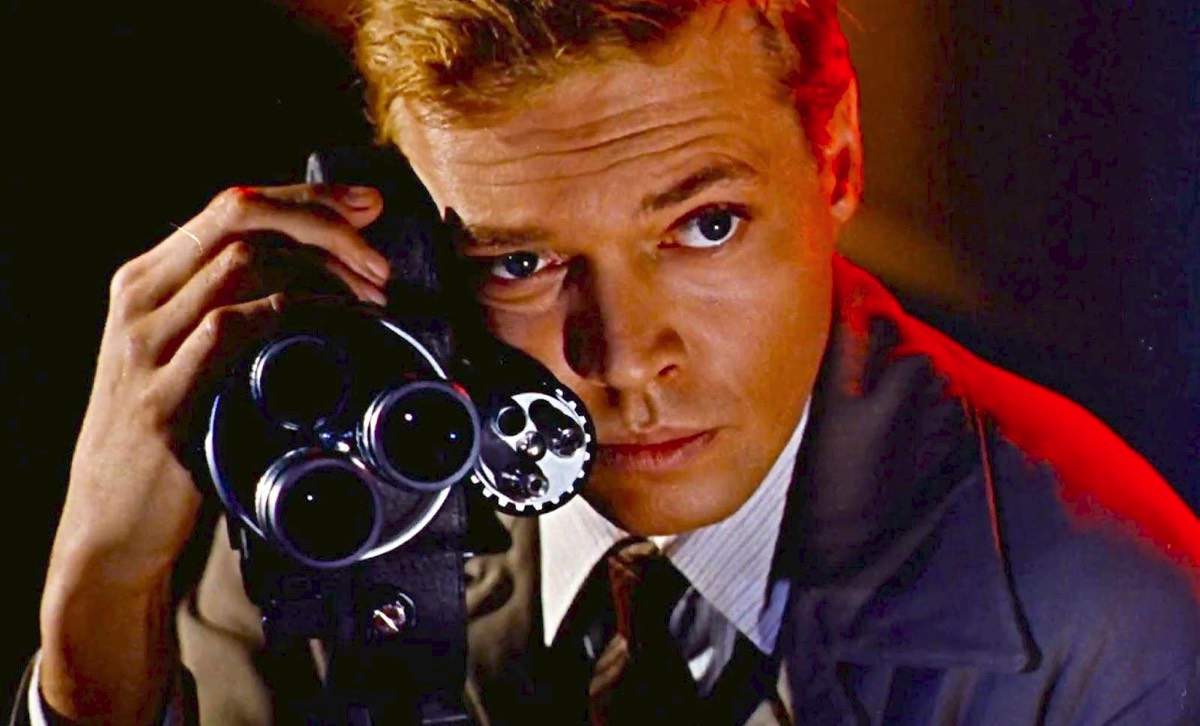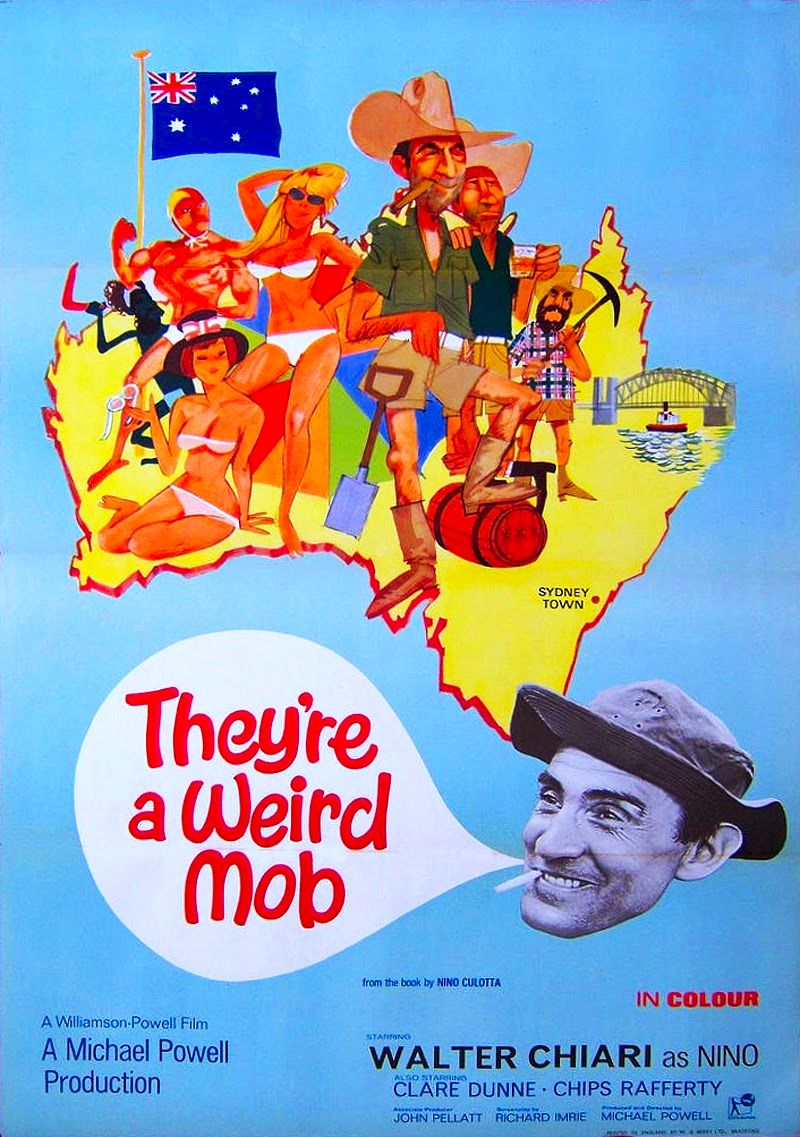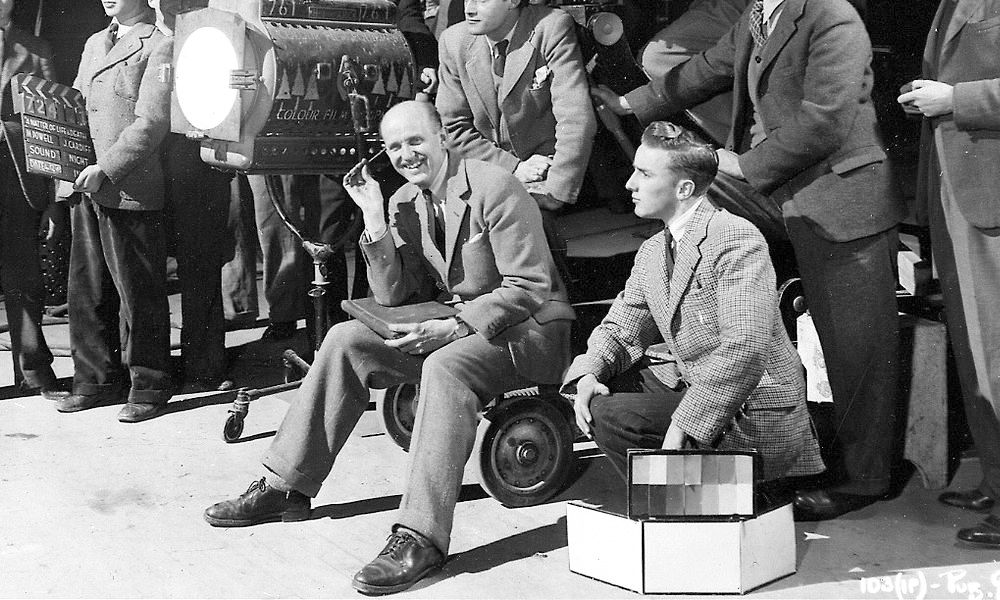"He is British cinema's foremost romantic, a visionary film-maker who, whether working with his long-time collaborator Emeric Pressburger or alone, produced films which elevate cinema to art and which reflect on the nature of British culture and identity." - Robert Shail (British Film Directors: A Critical Guide, 2007)
Michael Powell
Director / Producer / Screenwriter
See also Michael Powell & Emeric Pressburger
(1905-1990) Born September 30, Bekesbourne, Kent, England
Top 250 Directors
See also Michael Powell & Emeric Pressburger
(1905-1990) Born September 30, Bekesbourne, Kent, England
Top 250 Directors
Key Production Country: UK
Key Genres: Drama, Action, Spy Film, Psychological Thriller, War, Romantic Drama
Key Collaborators: Emeric Pressburger (Screenwriter), Conrad Veidt (Leading Actor), Valerie Hobson (Leading Actress), Freddie Young (Cinematographer), Derek Twist (Editor), Niall MacGinnis (Leading Character Actor), Esmond Knight (Leading Character Actor), Dennis Gentle (Production Designer), Raymond Lovell (Character Actor), Hay Petrie (Character Actor), Finlay Currie (Character Actor), Slim DeGrey (Character Actor)
Key Genres: Drama, Action, Spy Film, Psychological Thriller, War, Romantic Drama
Key Collaborators: Emeric Pressburger (Screenwriter), Conrad Veidt (Leading Actor), Valerie Hobson (Leading Actress), Freddie Young (Cinematographer), Derek Twist (Editor), Niall MacGinnis (Leading Character Actor), Esmond Knight (Leading Character Actor), Dennis Gentle (Production Designer), Raymond Lovell (Character Actor), Hay Petrie (Character Actor), Finlay Currie (Character Actor), Slim DeGrey (Character Actor)
“Although he is now acknowledged as one of England's foremost filmmakers, Michael Powell paid an enormous price for cultivating his personal vision within the context of a national cinema almost totally at odds with his artistic concerns. His emphasis on the uses of imagery and color has inspired a whole generation of filmmakers, including Ken Russell, Nicolas Roeg, John Boorman, and Derek Jarman.” - Joseph Gomez (The Virgin International Encyclopedia of Film, 1992)
"Next to Alfred Hitchcock (for whom he once worked as an assistant), Powell may be the most talented and important film director to come out of the English cinema… His visual technique, particularly his bold use of color and composition, has inspired many younger directors, including Martin Scorsese, Ken Russell, and Nicolas Roeg." - Leonard Maltin's Movie Encyclopedia, 1995

Peeping Tom (1960)
"Powell's originality lies in his refusal to surrender to the limitations of genre; while highly personal both in style (lavish visuals) and theme (the demonic nature of creativity; irrational, elemental powers; England), his work resists categorisation. Few British directors have been so ready to portray emotions and the effect of their repression; fewer still do so with such a sense of cinema's ability to liberate and inspire the imagination." - Geoff Andrew (The Film Handbook, 1989)
"The most original, imaginative and distinctively modern of British directors and, for many years, one of the most underrated, Michael Powell, enjoyed his biggest successes during the 40s, in close partnership with the Hungarian-born scriptwriter Emeric Pressburger… Working on his own Powell directed one last memorable movie, a genuinely chilling psychological horror, Peeping Tom, which rivals Hitchcock's Psycho as the scariest movie to come from a major director and which, to Powell's surprise, was attacked my censors and critics alike." - Joel W. Finler (The Movie Directors Story, 1985)
"In his last twenty years, Powell was recognised by disciples and critics as a major filmmaker, to the point where this once-despised figure now seems too comfortably swallowed by the accepted canon. But no-one greenlit the many projects he would like to have made, from The Tempest to The Fall of the House of Usher." - Kim Newman (Screen Online)
“Stylistically Powell is a master of colour and calculated visual extravagance… Thematically Powell might be described as a philosophical Sadist, in rather the same sense that Buñuel is; but this combined, rather bizarrely (and in a very British fashion), with something like High Tory politics and a sort of Celtic Twilight mysticism. In other words, Powell is a figure who seems to have strayed into the modern cinema out of the 1890s.” - John Russell Taylor (Cinema: A Critical Dictionary, 1980)
"In 1938, after making The Edge of the World (1937), a personal exploration of man's battle with nature on an isolated island off the coast of Scotland, Powell was brought together with German scriptwriter Emeric Pressburger to develop The Spy in Black (1939) as a vehicle for Conrad Veidt. Powell made two more films without Pressburger, including co-directing The Thief of Bagdad (1940), a remarkable fantasy film, before forming a partnership with Pressburger in their own production company, The Archers." - The Hollywood.com Guide to Film Directors, 2004
"Highly individual British film-maker, responsible for some bizarre but beautiful entertainments over 44 years as a director, many of them showing remarkable use of colour. His films are intrinsically British, yet almost all of them tinged by the desire to do something different. Thus some of his work is refreshing, some exciting, some demanding and some stimulating." - David Quinlan (Quinlan's Film Directors, 1999)
Selected Filmography
{{row.titlelong}}
GF Greatest Films ranking (★ Top 1000 ● Top 2500)
T TSPDT N 1,000 Noir Films
R Jonathan Rosenbaum S Martin Scorsese
T TSPDT N 1,000 Noir Films
R Jonathan Rosenbaum S Martin Scorsese
Michael Powell / Favourite Films
The Birth of a Nation (1915) D.W. Griffith, The Blue Angel (1930) Josef von Sternberg, Broken Blossoms (1919) D.W. Griffith, Un Carnet de Bal (1937) Julien Duvivier, The Gold Rush (1925) Charles Chaplin, Greed (1924) Erich von Stroheim, M (1931) Fritz Lang, Ninotchka (1939) Ernst Lubitsch, Turksib (1929) Victor A. Turin, The Wizard of Oz (1939) Victor Fleming.
Source: Cinematheque Belgique (1952)
The Birth of a Nation (1915) D.W. Griffith, The Blue Angel (1930) Josef von Sternberg, Broken Blossoms (1919) D.W. Griffith, Un Carnet de Bal (1937) Julien Duvivier, The Gold Rush (1925) Charles Chaplin, Greed (1924) Erich von Stroheim, M (1931) Fritz Lang, Ninotchka (1939) Ernst Lubitsch, Turksib (1929) Victor A. Turin, The Wizard of Oz (1939) Victor Fleming.
Source: Cinematheque Belgique (1952)
Michael Powell / Fan Club
Martin Scorsese, Richard Kwietniowski, David Pirie, Chris Rodley, Dinko Tucakovic, Kent Jones, Enno Patalas, Roger Ebert, Bertrand Tavernier.
Martin Scorsese, Richard Kwietniowski, David Pirie, Chris Rodley, Dinko Tucakovic, Kent Jones, Enno Patalas, Roger Ebert, Bertrand Tavernier.
"Fan Club"
These film critics/filmmakers have, on multiple occasions, selected this director’s work within film ballots/lists that they have submitted.
These film critics/filmmakers have, on multiple occasions, selected this director’s work within film ballots/lists that they have submitted.


